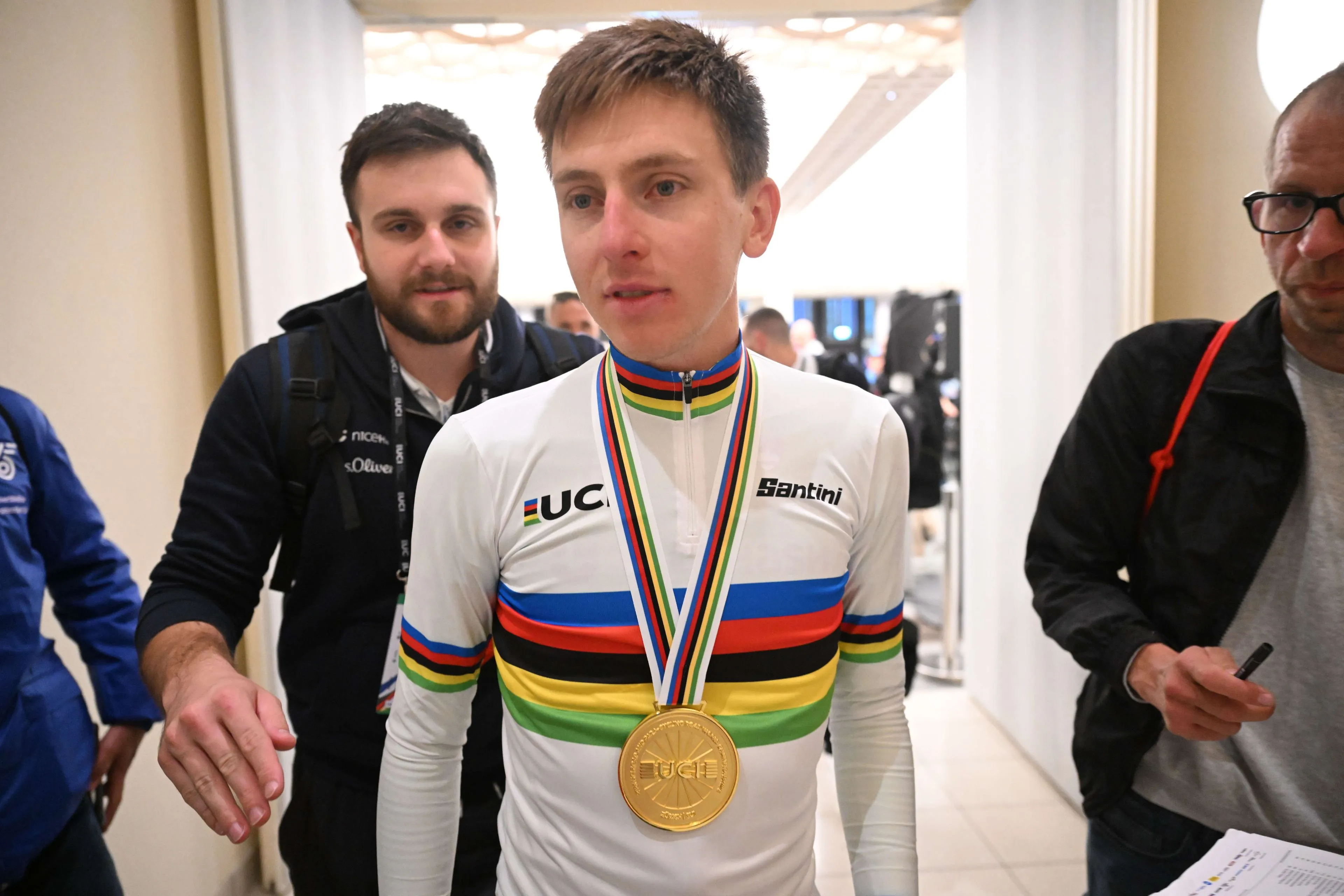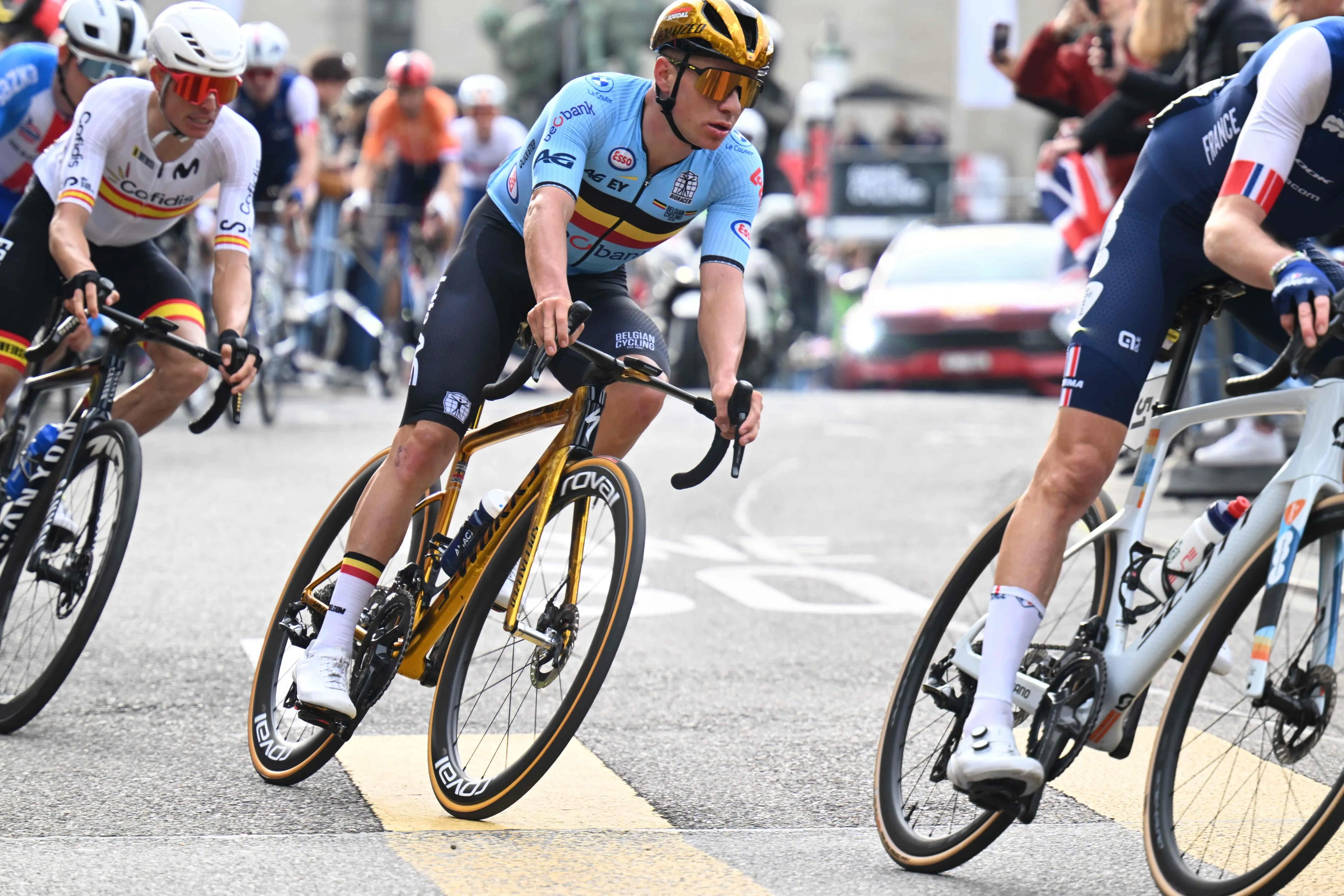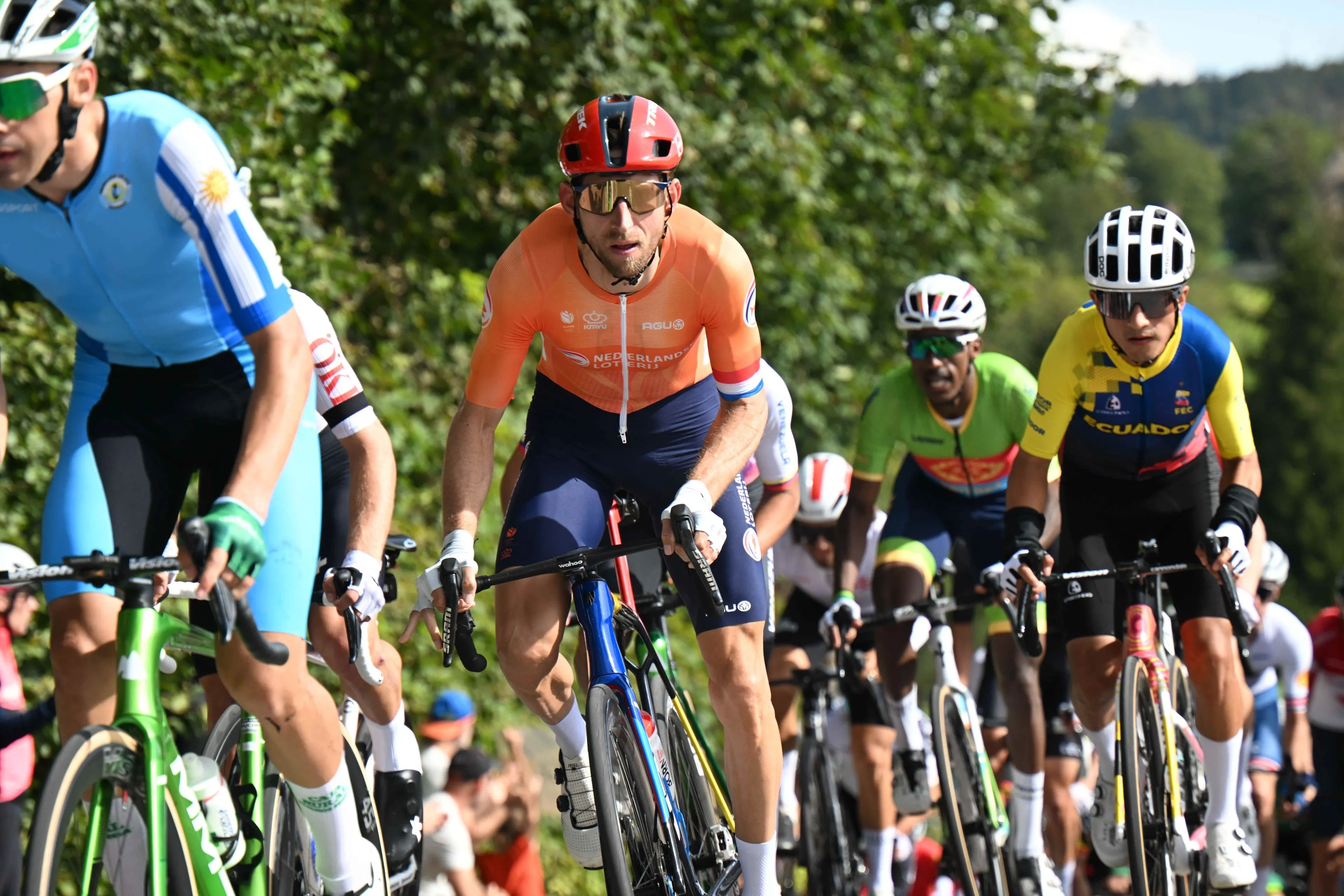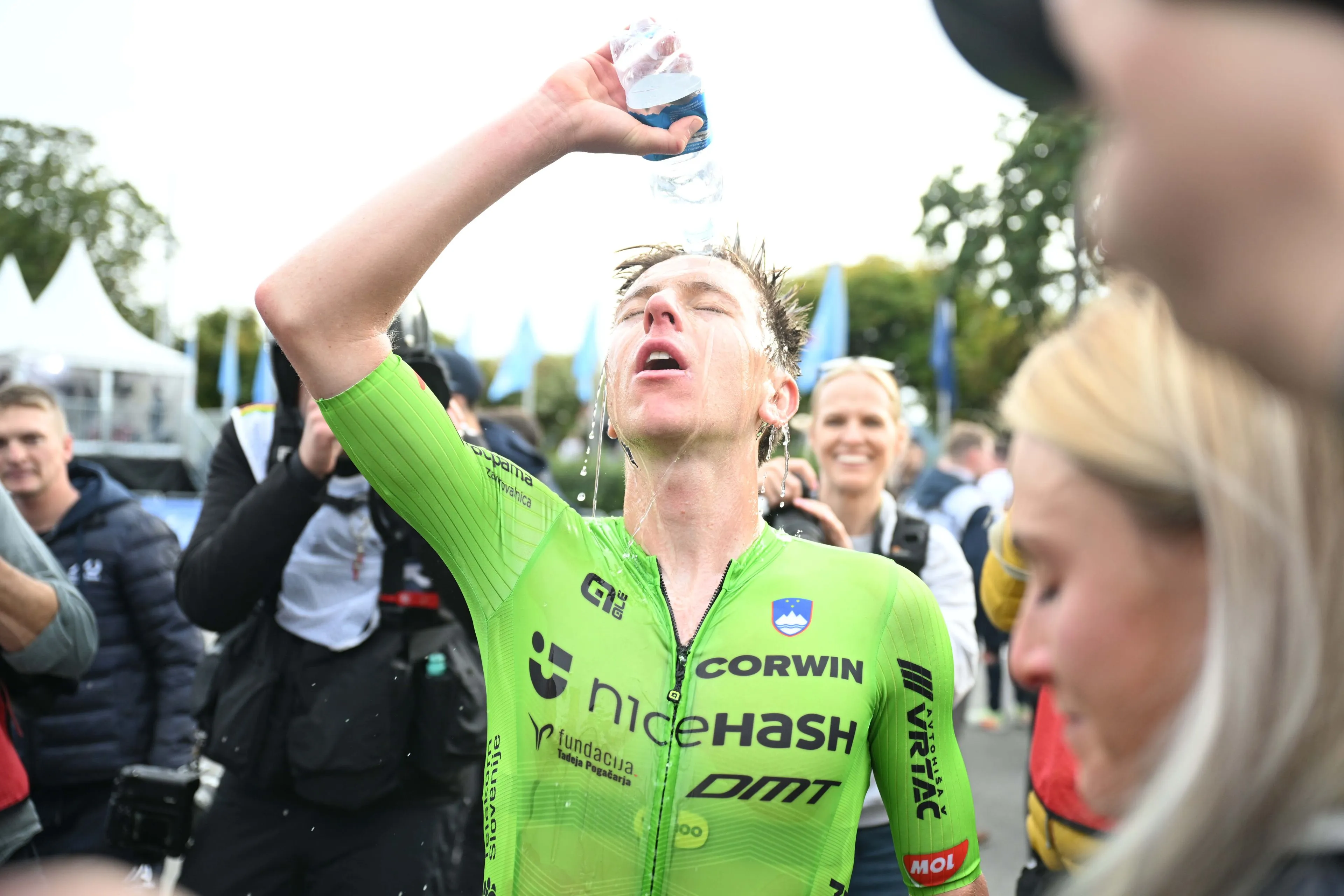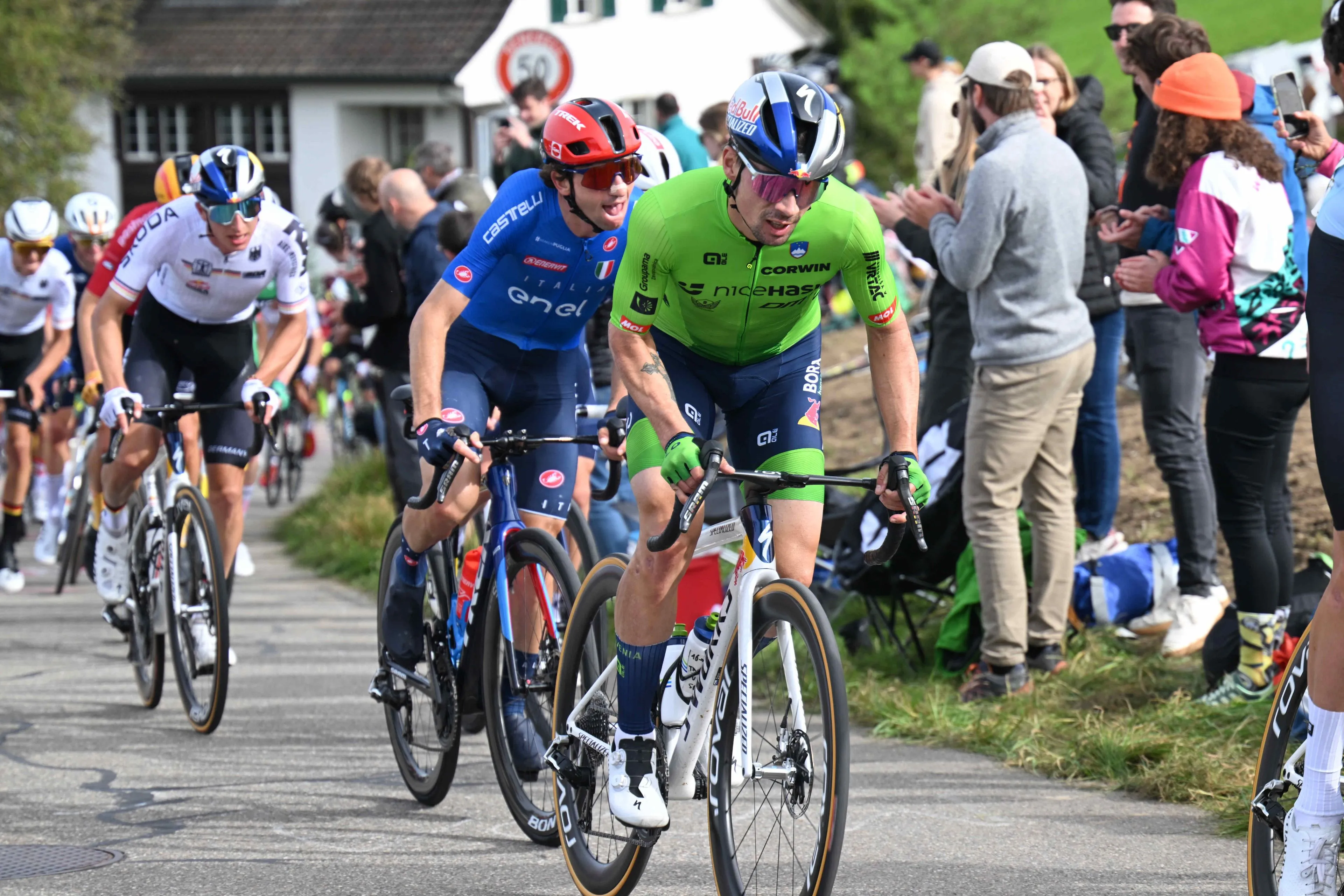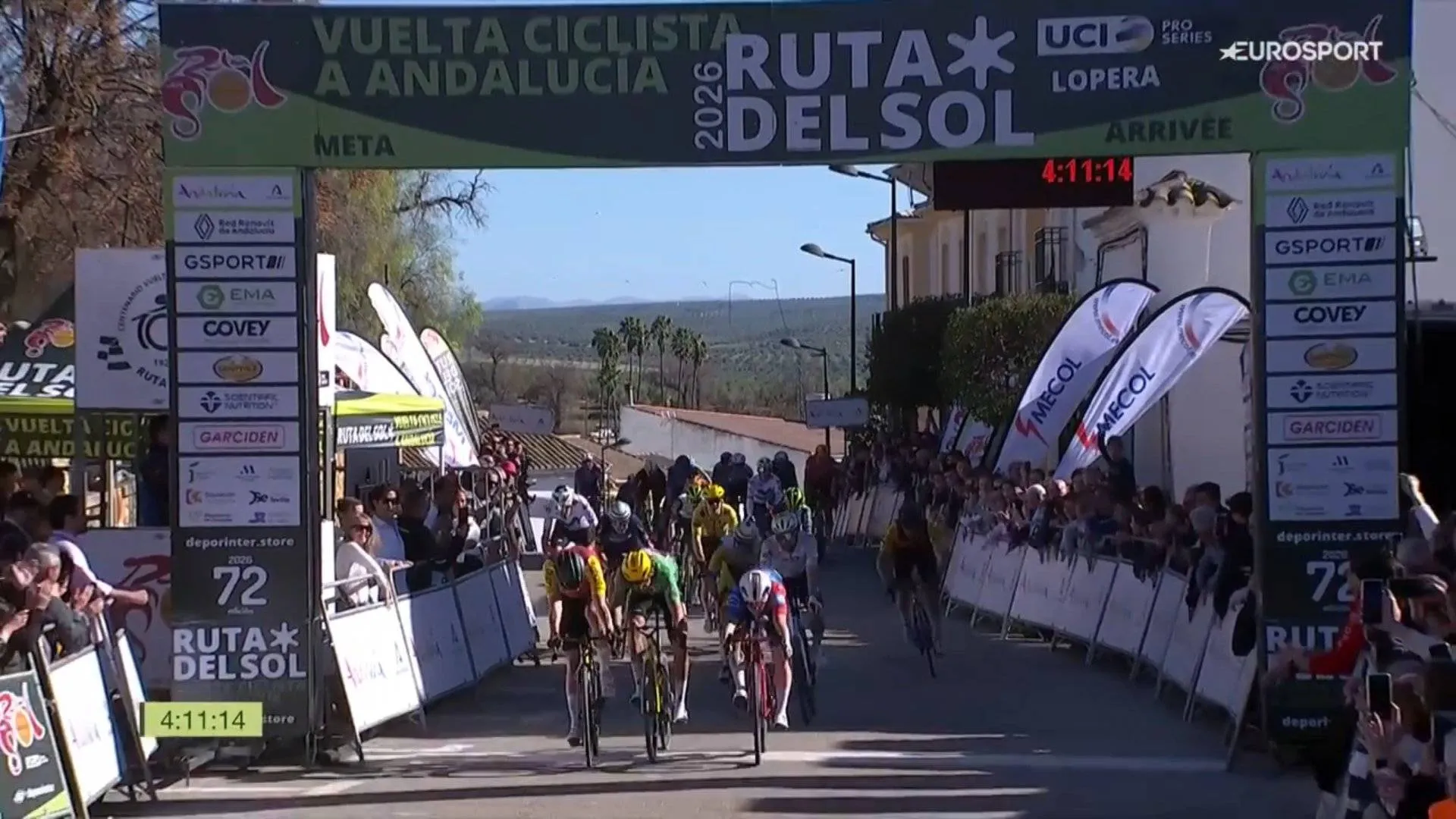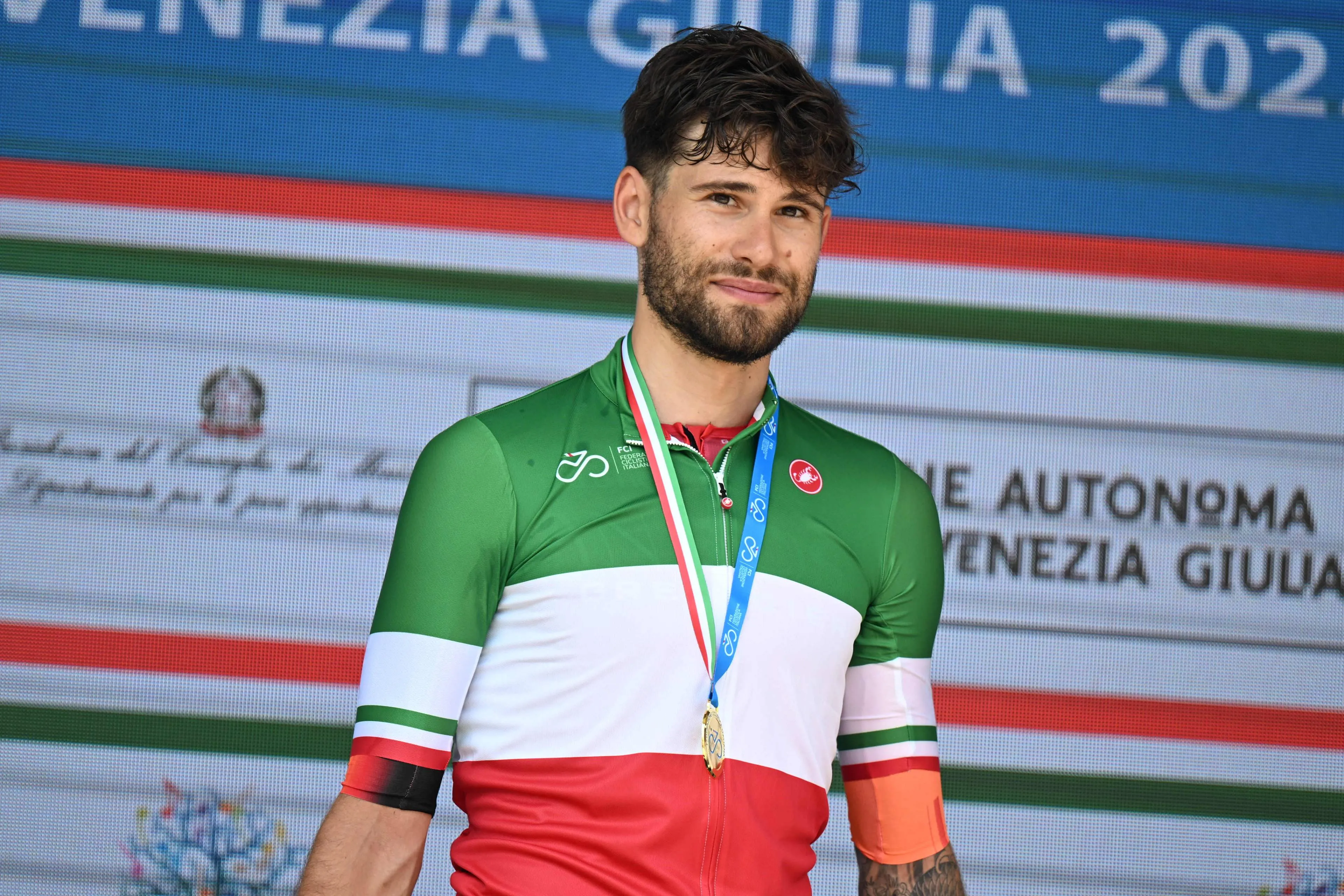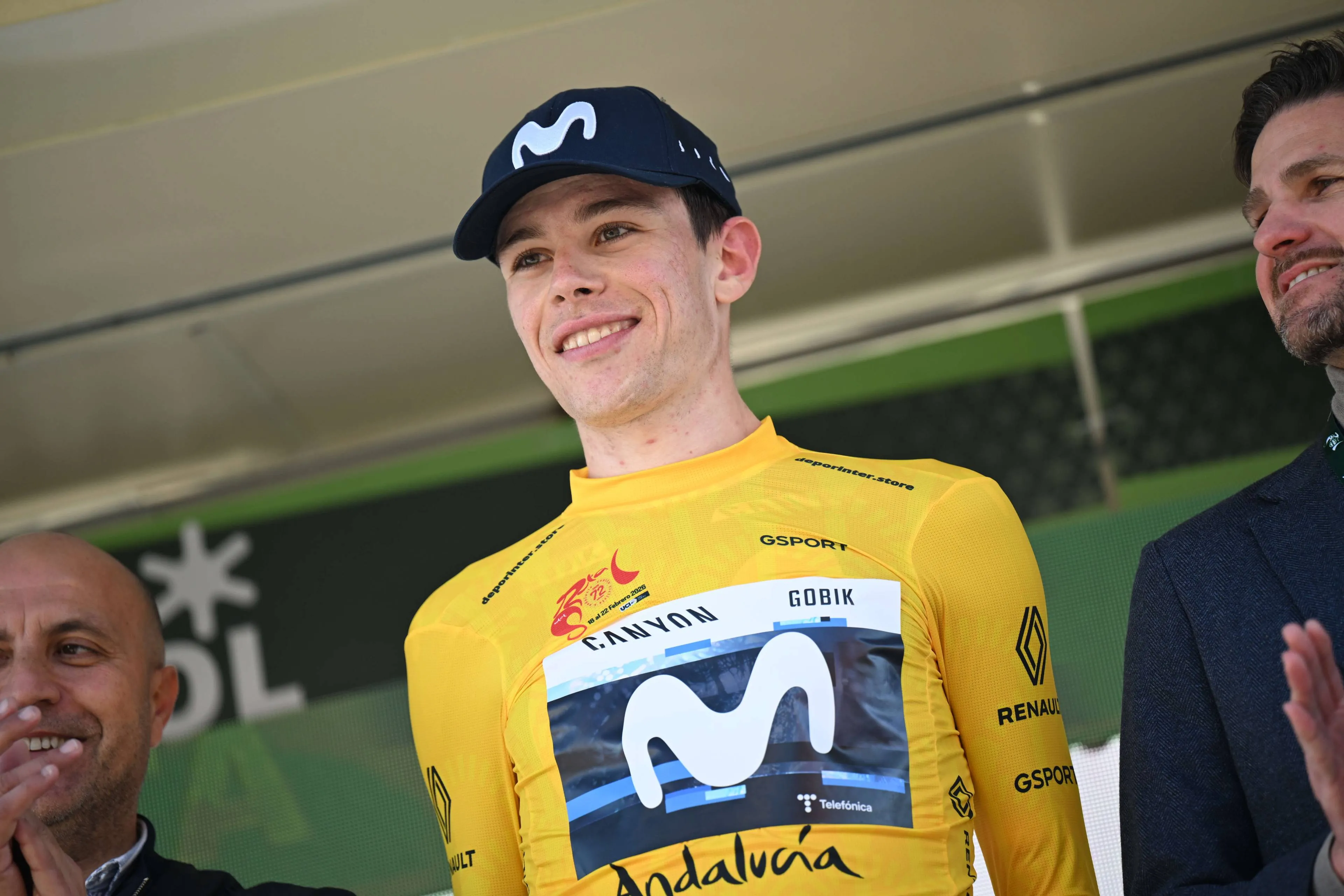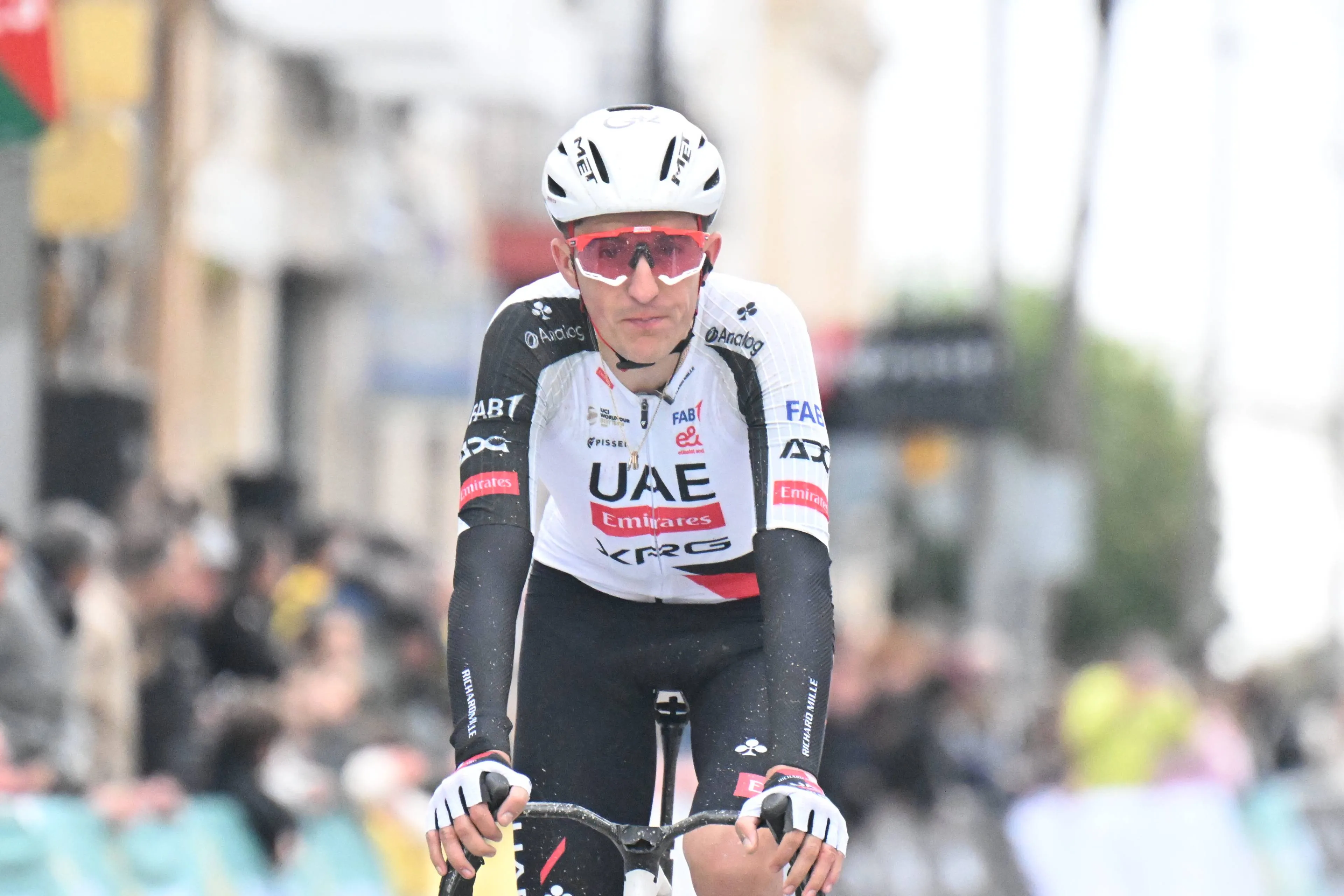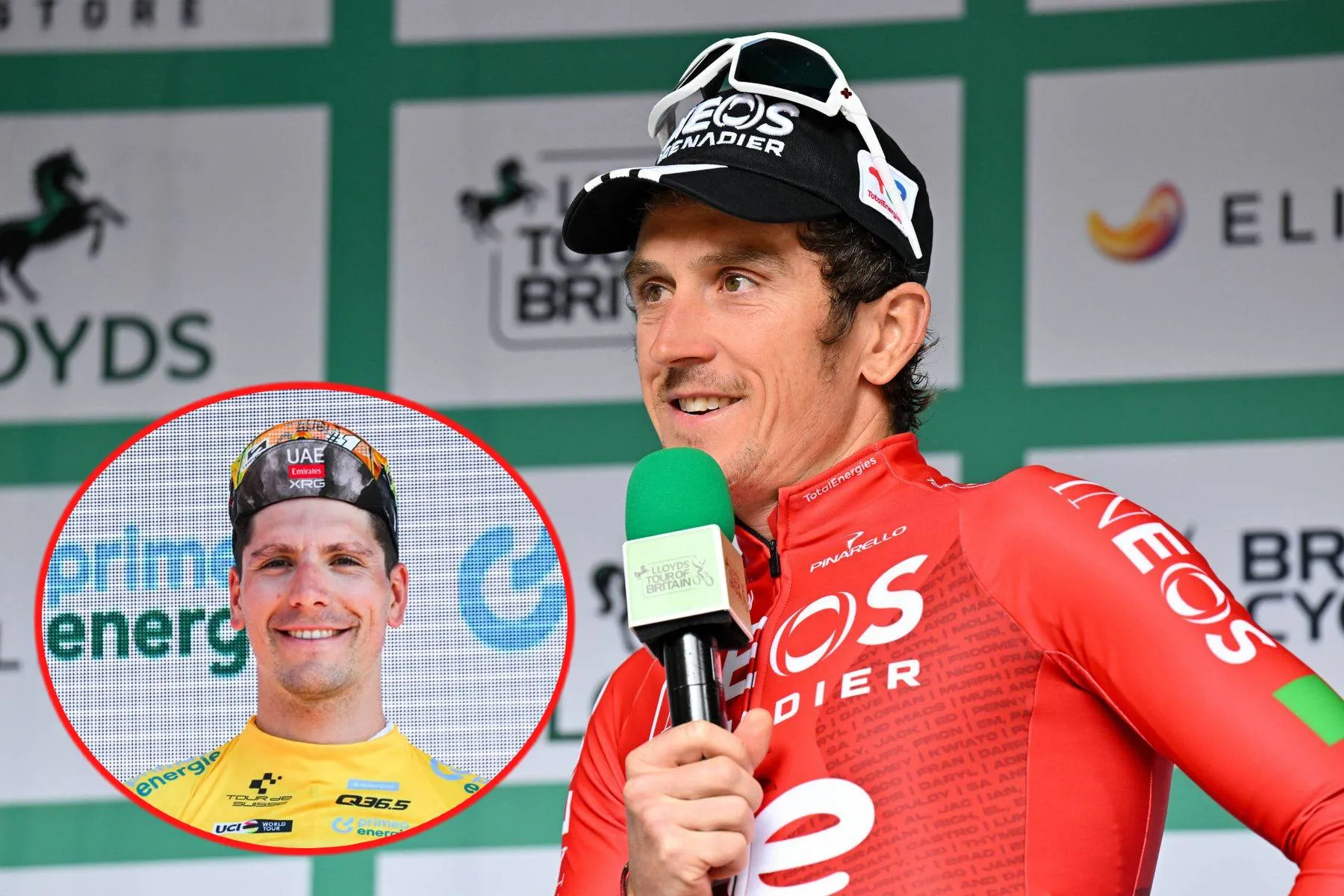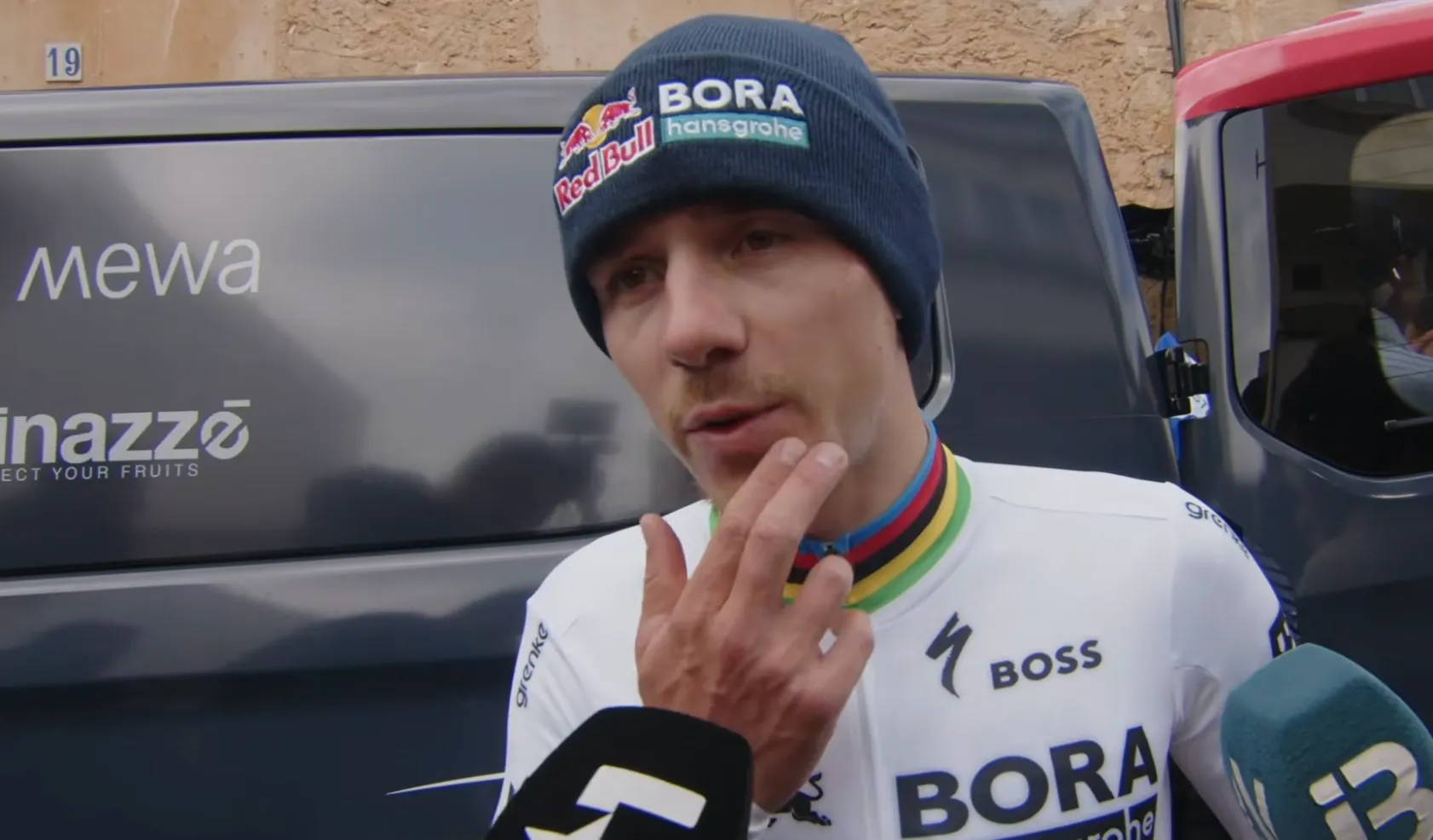ANALYSIS | Was Tadej Pogacar’s World Championship win his greatest ever ride?
CyclingMonday, 30 September 2024 at 12:15
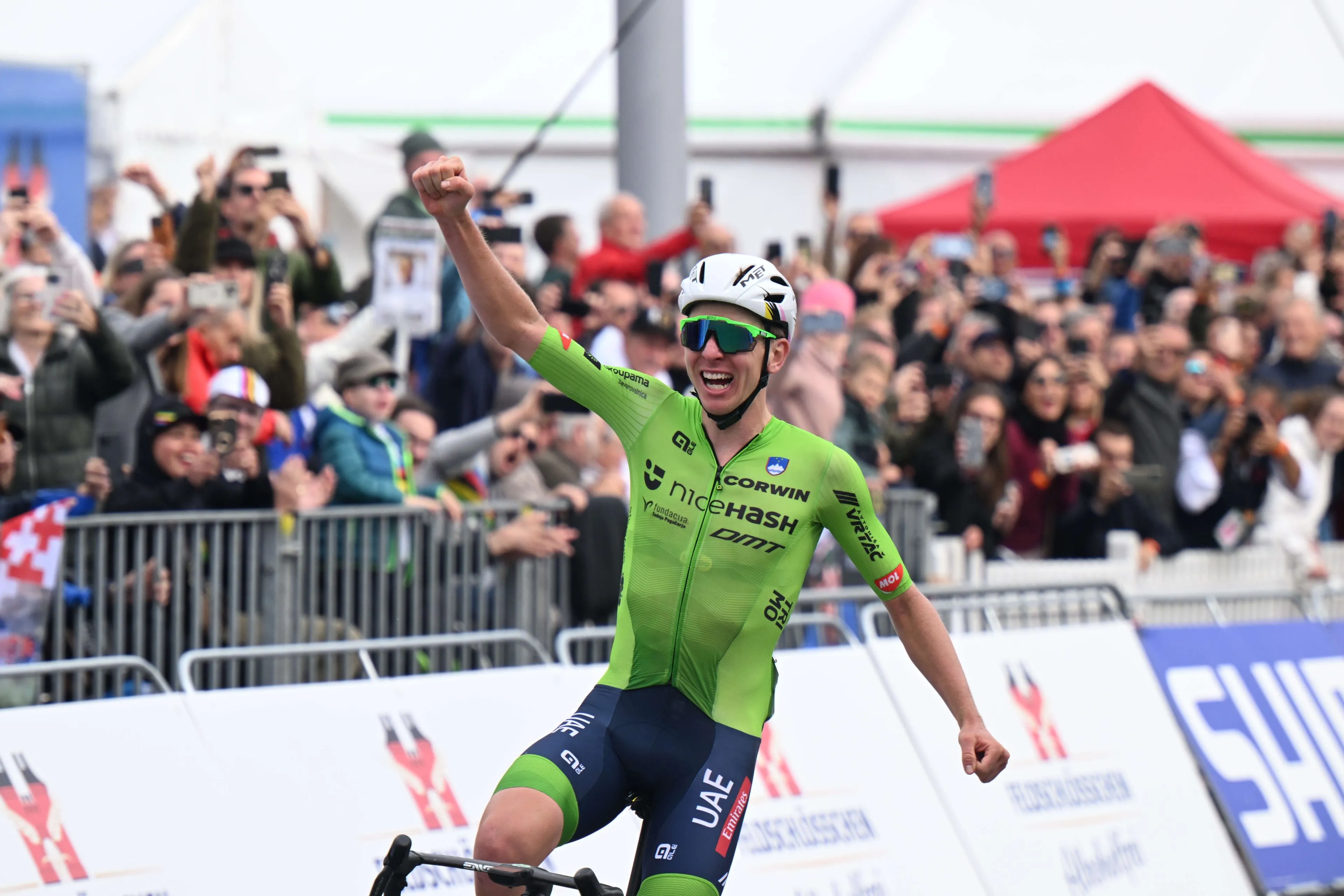
What we witnessed on Sunday, September 29, 2024, in Zurich
was nothing short of legendary. Tadej Pogacar cemented his place in the
pantheon of cycling with a historic victory in the World Championships road
race, securing the coveted rainbow jersey for the first time in his career. And
it wasn't just any win—it was a solo attack from 100 kilometres out, a feat
that harkens back to the golden age of cycling, a time when the likes of Eddy
Merckx ruled the roads. This victory stands as a monument to his dominance and
might just be his greatest performance to date.
Pogacar, now the reigning champion in almost every
meaningful race he’s contested, seems to be racing not just against his rivals
but against history itself. With every pedal stroke, something remarkable
happens. And in Zurich, what unfolded was the crowning of what may well be the
most outstanding season in modern cycling. Even more impressive, he still has
Il Lombardia to cap off this historic campaign.
Read also
The best season by a cyclist, ever?
This World Championship victory places Pogacar in an elite
club, alongside only two others: Eddy Merckx and Stephen Roche. Like them, Tadej Pogacar has managed to win the Giro d'Italia, the Tour de France, and the World
Championships all in the same year. It’s an achievement that requires a rider
to be exceptional in every discipline, over a wide array of terrain, and
against the world’s best riders. But what separates Pogacar from Merckx and
Roche is the manner in which he has won.
The seeds of his incredible 2024 season were planted long
before Zurich. On April 21, 2024, Pogacar took victory at Liège-Bastogne-Liège,
a race that saw him destroy his rivals with astonishing ease. That win, coming
so early in the season, was a warning shot to the rest of the peloton—this was
going to be his year. Liège was merely the first of many major wins that would
follow.
Fast forward to the World Championships, and Pogacar’s
attack 100 kilometres from the finish was a move straight out of the pages of
cycling folklore. His rivals, including Olympic champion Remco Evenepoel and defending
champion Mathieu van der Poel, were left stunned. With 50 kilometres to go, the
gap between Pogacar and the rest of the field began to widen, and by the
finish, he crossed the line 30 seconds clear of the chasing group.
Read also
A solo masterclass foreshadowed
The Zurich victory, however astonishing, shouldn’t have come
as a surprise. Pogacar had shown glimpses of his otherworldly form much earlier
in the season. The signs were there in March when he won Strade Bianche with an
incredible 81-kilometer solo attack. On that day, he left behind riders like
Toms Skujiņš, Maxim Van Gils and Tom Pidcock, crossing the line nearly three
minutes ahead of the field. It was an outrageous show of power and skill,
setting the tone for what was to come later in the year.
At that point, no one could have predicted that Pogacar
would go on to attempt the Giro-Tour double, a feat not accomplished since
Marco Pantani in 1998. Coming off a difficult 2023 season marred by injury and
a second-place finish in the Tour de France, some thought his ambitions were
too lofty. He had surgery on his wrist after a crash at Liège-Bastogne-Liège,
and his summer preparation had been severely hampered. In the Tour de France,
Jonas Vingegaard crushed him on the Col de la Loze, leaving Pogačar a distant
second in the overall standings.
But Pogacar’s decision to target both the Giro and the Tour
was not a sign of hubris, it was the start of one of the greatest comeback
seasons in history. He turned the page on his 2023 disappointments with that
early victory in Strade Bianche, and from there, the floodgates opened.
Read also
Dominating the Grand Tours
By the time Pogacar lined up for the Giro d’Italia in May,
he was in peak condition, and the race quickly became a procession. Stage after
stage, he put time into his rivals, with six stage wins to his name by the time
he rolled into Rome in pink. One of the most memorable performances came on
stage 15, where he gave riders like Nairo Quintana and Michael Storer a head
start on the queen stage of the race. But with 14 kilometres left on the final
climb, Pogacar attacked. His acceleration was so explosive that he quickly
overtook every rider on the road, eventually catching Quintana with 2 kilometres
to go and winning the stage solo. Pogacar roared across the snowy mountain top
finish in Italy, and his incredible season kept gathering momentum.
That Giro performance was a masterclass in stage racing, but
the Tour de France was where Pogacar truly reasserted his dominance. Having
been humbled by Vingegaard the year before, Pogacar was on a mission to reclaim
the yellow jersey. He started the race cautiously but exploded into life in the
second half. On stage 15, in one of the most thrilling rides of the race, he
attacked in the mountains, distancing Vingegaard by over a minute and putting
nearly three minutes into Remco Evenepoel. That stage alone was a reminder of
why Pogacar is considered a generational talent, capable of turning the race
upside down in an instant.
By the end of the Tour, Pogacar had reclaimed the maillot
jaune, with six stage victories to his name once again. He had won both the
Giro and the Tour, something few thought possible in the modern era, and had
done so with an ease that bordered on arrogance.
Read also
The Crown Jewel: World Championships
For all the glory of his Giro and Tour victories, the World
Championships in Zurich might be Pogacar’s finest hour. He wasn’t content to
simply wait for a sprint or a tactical showdown with his rivals. Instead, he
attacked with 100 kilometres still to race, in a move that was more Merckx than
modern cycling. It was the type of audacious solo attack that made you wonder
if he had gone too early, but Pogacar never looked back.
With every pedal stroke, the gap grew, and the chasing pack,
filled with the world’s best climbers and time trialists, couldn’t reel him in.
It was a ride that will be talked about for years, a performance that cemented
his status as not just the best rider of his generation, but possibly one of
the greatest of all time.
Read also
Tadej Pogacar vs History
Now, with the World Championships, Giro d’Italia, and Tour
de France victories in his pocket, the question is: where does Tadej Pogaar go
from here? He’s already joined Merckx and Roche in the pantheon of riders who
have won cycling’s three most prestigious titles in a single season. But
there’s something about Pogacar that makes you think he’s not done yet.
There’s still Il Lombardia left to race, a race he’s won three
times before. Should he win that too, he will have capped off a season that is
not just historic but unprecedented in its scope. With 20 victories already to
his name in 2024, including Monument wins, Grand Tour triumphs, and now the
rainbow jersey, Tadej Pogacar has had a season that will be nearly impossible
to replicate.
Read also
Conclusion: Was Zurich His Greatest Ever Ride?
It’s hard to single out one ride as Pogacar’s greatest when
his career is already littered with moments of brilliance. His 2020 Tour de
France win, where he snatched victory in the final time trial, was an iconic
moment in modern cycling. His multiple Monument victories have showcased his
versatility. But his World Championships victory in Zurich stands out for its
audacity, its execution, and its place in the context of his already incredible
2024 season.
Yes, this might just be Tadej Pogacar’s greatest ever ride.
And if it is, it’s because it wasn’t just about the victory, but about how he
won—by attacking 100 kilometres from the finish and holding off the world’s
best riders. It was the culmination of a season that has rewritten the record
books and left us wondering: just how much better can Tadej Pogacar get?
Read also
claps 4visitors 4
Just in
Popular news
Latest comments
- Top 6-10 for him is more realistic than podium but well see if he can stay on the favourites atop double Alpe d'Huez ascent.
 James2631820-02-2026
James2631820-02-2026 - I was going to post the same comment. He just can’t catch a break.Pedalmasher20-02-2026
- Totally agree. This kid has a bright future.Pedalmasher20-02-2026
- The thing is, he never has to worry about his career because he can spend the rest of his life living rent-free in your head.antipodeanpedalfan20-02-2026
- That's true, but you can't count out a resurgence from him later like Vingegaard did in 2025 (although he was 10 seconds behind, not 30)
 Rafionain-Glas19-02-2026
Rafionain-Glas19-02-2026 - Lipowitz ddn't really keep up to the big boys today either.....mobk19-02-2026
- Yes, the guy is no fluke. Even if he fails to improve over the next 15 years he’ll do damage. That young blood is going to keep the establishment working hard.Mistermaumau19-02-2026
- This excuse is harmless, just quaint and amusing. The excuse I really disliked was when he accused a mechanic of improperly adjusting his saddle, endangering the mechanic's job: blaming others for your own limitations is a serious matter.
 maria2024202419-02-2026
maria2024202419-02-2026 - ok so this is impressive - I trashed this guy all winter, get a pro win before the anointing. against a quality field. And Onley and Riccitello look good too. fun to see young blood.mij19-02-2026
- Minor flaws.... thats like suggesting Genghis Khan was a bit aggressive with other countriesslappers6619-02-2026
Loading
3 Comments
